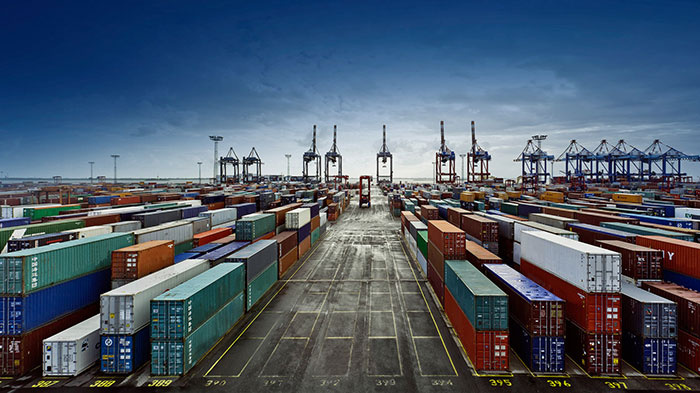Principlists Use Post-Nuclear Deal Imports Figures to Bash Rouhani

One of the many lines Iran’s Principlists follow in their criticism of the Rouhani administration has been imports, particularly in the post sanctions era and more particularly so from the west.
Even before President Rouhani took office, the amount of low-quality products imported under his predecessor Mahmoud Ahmadinejad had sparked criticism, in cases from among Principlist camp. The notion in the air was that Iran had been creating job opportunities in countries like China and India, while the production sector in Iran struggled under the nuclear sanctions, furthering already high unemployment rates.
Ghanoon Daily, a moderate newspaper shut down a few months ago by the judiciary, published a table earlier this year that could provide a sneak peek into the workings of trade when two branches of the government were dominated by the Principlists. Sheep intestines, shovels, lipstick, poultry, sawdust, mules, whiplash and wigs were among some of the commodities imported in two to five digit quantities during the Principlist reign, according to the table, which went viral on many reformist platforms. Iran has imported goods from China roughly worth $80 billion during the eight-year presidency of Mahmoud Ahmadinejad according to facts and figures.
The Principlists had to swallow those criticisms at the time, but now its time for their long-awaited kickback. In one of the latest series of articles published in Principlist media outlets, far-right Javan daily has criticized the administration for imports of final, consumer and luxury goods. The prelude of Mehran Ebrahimian’s article, while inverting the truth, provides an unconscious introduction to the arithmetic logic behind the Principlists’ objection.
“In the years that oil dollars flew to the country in abundance, bringing in imported and sumuggled goods, mainly because of the power of the Iranian currency, domestic producers were marginalized vis-à-vis their foreign competitors but then the sanctions came and abruptly restricted imports of gravestones, ice cream sticks, etc., giving officials good reason to scorn previous measures. However, when the nuclear talks became serious and with the advent of the post-sanctions era, once again weird goods are seen in the Customs official figures that are needed by less than one percent of the society.”
It is worth noting that Iranian rial experienced an all-time record low under Ahmadinejad.
After a quote from the deputy chairman of the Iran-China Chamber of Commerce, who believes increased oil revenues only increase consumer imports if the economy is unable to attract foreign investment and equip its factories, the article hands out a short list of items imported during the first six months of the current Persian calendar year (March 20- September 21). The imports of teflon tapes and safety pins, needed by one percent of the society, barely exceed $600,000 but have been dedicated two paragraphs of the printed article.
On Saturday, hardliner Mashregh News also published an article in its Resistance Economy section, rapping Germany’s profit-making under the nuclear deal. “Doubtless, the main reason behind Germany’s support fo the JCPOA was openning Iran’s gate to German goods. Now, Germans can easily exports their consumer goods to Iran,” the article says. A rather long list of items that Mashregh calls “shoddy, with domestic equals” follows but in every one of the few cases worth about half a million dollars, one could see the word ‘medicine’.
It was in early October, when Germany’s vice-chancellor Sigmar Gabriel had just visited Iran in the midst of a controversy over his remarks in an interview with Der Spiegel, Nasim Online went to the lengths of calculating a 21 percent rise in German exports to Iran, while the goods topping Iran’s imports from Germany were soybeen and sunflower seed oils as well as medical supplements and mechanical machinery.
It seems it is not only Germany or Iran’s archenemy the United States, but the entire West that the Principlists want to keep at arm’s length. Three months ago, Principlist pro-Qalibaf news agency Mehr had already started to hammer the nuclear deal and the Rouhani administration for soaring imports from the European Union.
Even a positive trade balance over lower imports has fallen short of rendering Rouhani’s critics silent. Asadollah Asgaroladi, known as the wealthiest man in Iran, a man with strong Principlist links, says it is not necessarily good news. “If imports are reduced, we cannot supply the country’s needs,” he said, calling on the Central Bank to find ways to reduce consumer goods imports but boost imports of machinery required for the production sector.

